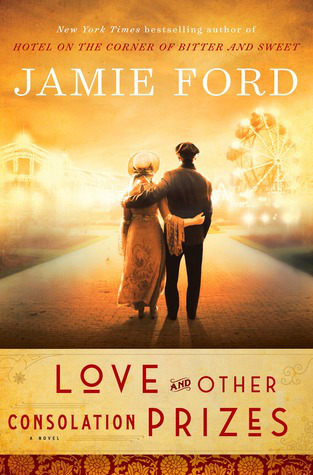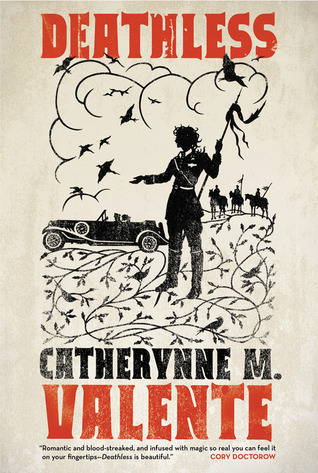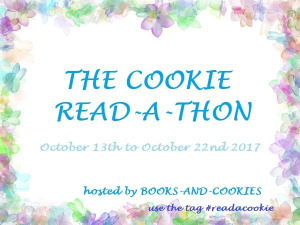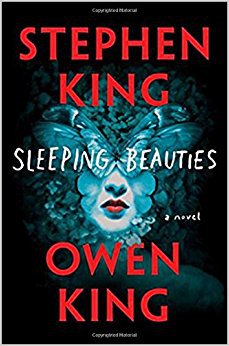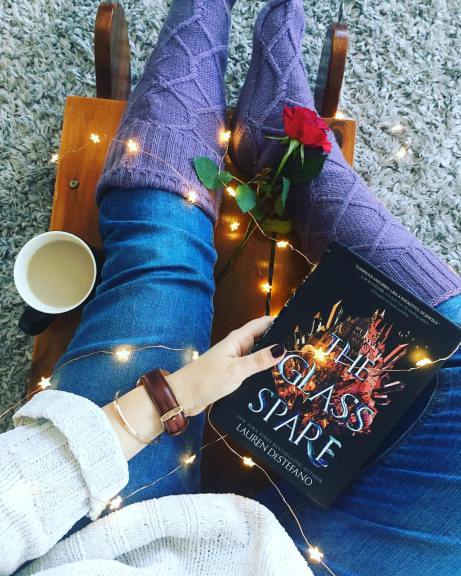 Hello everyone! I am so, so honored, thankful and thrilled to feature one of my favorite authors, A.S. King, today for Shattering Stigmas. Amy is a fantastic writer and a lovely person. She writes unflinchingly raw, real and honest books about teens that are complex, vibrant and full of hope. Her latest YA book, Still Life with Tornado, is about Sarah, a girl who has an existential crisis and deals with the implosion of her parents’ marriage via various past and future versions of herself. It’s weird, it’s real and it’s lovely like Amy’s other YA books including Please Ignore Vera Dietz, Everybody Sees the Ants and Glory O’Brien’s History of the Future. You can find her on Twitter or on her website.
Hello everyone! I am so, so honored, thankful and thrilled to feature one of my favorite authors, A.S. King, today for Shattering Stigmas. Amy is a fantastic writer and a lovely person. She writes unflinchingly raw, real and honest books about teens that are complex, vibrant and full of hope. Her latest YA book, Still Life with Tornado, is about Sarah, a girl who has an existential crisis and deals with the implosion of her parents’ marriage via various past and future versions of herself. It’s weird, it’s real and it’s lovely like Amy’s other YA books including Please Ignore Vera Dietz, Everybody Sees the Ants and Glory O’Brien’s History of the Future. You can find her on Twitter or on her website.
You tackle so many critical teen mental health and wellness issues in your book from grieving the loss of a parent to bullying to domestic violence to the pressures of standardized testing. What usually comes first, the characters or the issues and contexts that they’re placed in?
Characters seem to come first for me. They show up and start talking and tell me about themselves. I don’t think beyond that. They have to tell me what to think about. In Sarah’s case, after she told me her first chapter, I thought: Why does she think there’s no such thing as an original idea? What’s so wrong with her that she couldn’t fight this claim? What’s she trying to tell me? And then I write and she tells me, eventually. In this case, I found out over time that her father is a controlling abuser and the whole family system has been adjusted in order to allow him to do this in a way that feels normal. But it’s anything but normal.
You’ve mentioned in the past that part of the fuel behind your writing is to help teens understand adults and help adults understand teens. How do you hope your writing builds the bridge for teens and adults to talk about the real stuff like mental illness?
The first step in that equation is: adults need to read the books. If they don’t, then they can’t be reached. The bridge is inside the writing. When teens read it, they feel as if someone understands them and they also, through the adult voices I write, get a chance to see why the adults around them may seem distracted or uninterested. Adults who read my books—the ones who write to me, anyway—are usually floored by the fact that they could “feel” their teenhood again and they find things there (as we all do throughout our lives) that are messing up their present day lives. I’ve had people as old as 70+ write to tell me that my book changed their mind about something that happened to them as a teen—they’d never taken it seriously before. Why? Because that’s what teens hear all the time. Not to take things too seriously. Things are “a phase.” Things aren’t so bad, this is hormones. Etc. When really, more than a quarter of teenagers are suffering from mental illness in silence because adults have a hard time taking them seriously. Teenhood is when many mental illnesses come to light. As parents, we forget that—no—we aren’t told that, so we often don’t even know it. We blow off all sorts of things. Our culture approves of this blow off. And then you end up with statistics like this one: The second leading cause of death of those aged 15-19 is suicide. If this doesn’t make us stop and finally TALK about mental illness, I’m not sure books can. Parents must be willing to walk halfway across the bridge and drop the stigma of reading a book about teenagers first, then they might be willing to drop the stigma of teens with mental illness.
If there’s anything I know, it’s that people with a mental illness usually do not know what is going on. If that person is 35, a friend or family member may say, “You should see a doctor.” But if that person is 15, a friend or family member is more likely to say, “You’ll feel better tomorrow—this is teenhood, kiddo.” So, my books are here to help young adults recognize that not only might they be going through something inexplicably hard and not just normal teenhood, but I also aim to urge them to SAY SOMETHING ABOUT IT. And if adults read my books, they might actually LISTEN. Most of the adults in my books are living with bad stuff because they feel stuck with it. I’m here to say: yeah, we’re all stuck with some stuff but we don’t have to be stuck with others. There are many ways to live life and see the world. And we can help ourselves and help our loved ones if we could just LISTEN.
Many of your books feature surreal twists such as Lucky’s visits to Vietnam in Everybody Sees the Ants, the kids in I Crawl Through It and the Sarah’s in Still Life with Tornado. Can you discuss a little bit about how you use surrealism to represent mental health or psychological journeys in your writing?
Mental illness is surreal. I know because I am surrounded by it in everyday life. Shock is surreal. I know because I’ve experienced it. Being bullied is surreal. Again, I know because I’ve been there. Psychological journeys are most important to me because they accompany every other kind of journey. Regarding mental illness, we just rarely talk about it and it’s still so surrounded by shame that people are judgmental about it rather than compassionate. Which is downright weird if you ask me. So surrealism certainly fits into my work because the world in which I live—the world in which we all live—is super surreal.
We have become a huge number of unconnected people vying for some sort of trophy. Depends who you are which trophy you’re aiming for, but we seem to have forgotten that we are all little pieces of a far larger thing. Maybe that vision is too big to fit into the viewfinder, and I get that. But in real life, we should be helping each other more. We should be talking to teenagers and helping them grow and learn and not lecturing them about how they’re always on their phones. Dude. I’M ALWAYS ON MY PHONE TOO. And so are most adults. I see them everywhere. 70% of the adults who drive by my house are literally looking at their phones while they drive. But sure, tell us again how it’s the teenagers who are ruining everything.
…
So yeah. Surrealism is a huge part of my work because I think life on Earth is surreal. But being a teenager—in a culture that pretty much thinks you suck and you’re stupid at every turn—is surreal. (Much like being part of any marginalized group is surreal because this same attitude rules the lives of so many people long beyond teenhood.)
One of the goals of Shattering Stigmas is to dismantle the stigma against mental illness by creating a safe space for people to discuss these issues and raise awareness about mental health via their favorite mental health reads and personal experiences. I know that talking and writing about mental health is important to you. Could you say a bit about why you think writing about YA is so crucial and has your view of it changed between when you first started writing and now?
I wrote for a long time not knowing I was writing YA. This is a common story. However, I have my own reasons. (I was in a foreign country where YA didn’t exist like it does here.) But once I started writing YA knowingly, I guess I thought back to myself as a teenager and how much I needed books that made me feel like I wasn’t so awful. Or how about this? I needed books that helped me understand myself without judgment. Or I needed books where I could see myself and see a character like me succeed. I spent most of my youth hearing that I’d never get anywhere if I didn’t do A, B, or C. I was sure I was going to be a complete loser for life. Turns out A, B, and C were not the only way to succeed.
As for how my writing has changed, I don’t know. The more I meet teenagers all over the world, the more I see the stigma of just being a teenager. And the more I want to offer an outreached hand to help in whatever way I can. A small escape from the hazing, I guess. It makes me more determined to keep writing the books I do, even though I’m always broke and need a few other jobs to survive. Money means nothing compared to helping human beings. I have no idea where I got that idea, but I know I’ve had it from a very young age because I used to have recurring dreams about it. (Which you will see in a graphic novel one day soon.)
Are there any mental health issues you wish were more widely represented in YA?
I had to think about this one for a while. You know, I think YA has some great representation in the fiction arena for most mental illness or emotional upheaval. What I’d like to see more of? Non-fiction. Books that are there to help teens deal with their mental illnesses and see the symptoms themselves because at this point, I’ve given up on adults figuring it out. I’m not saying all parents are awful. It took ME more than a year to figure out something was going on with MY KID. My partner went undiagnosed for 45 years and in our 30 together, I never once thought to look up his behavior to see if it was a result of a mental illness. I just thought he was being a jerk. But he was suffering. Badly. And now here we are, a family who talks openly about mental illness. Healthy—as healthy as we can be—day to day. So, I’d like to see more non-fiction, self help, maybe alongside story collections, poetry, things that both enlighten the reader to the symptoms or spectrum of symptoms of a disorder, and then a story or poem that relates. (Whoever runs with this idea, please let me know. I’d love to contribute somehow.)
Do you have any self-care tips, tricks or secrets you’d like to share?
I am not very good at self care. I’m working on it. One of the things I most need in my day is time alone to just sit by myself. This is hard for my family to understand sometimes because as far as they can see I’m in here in the office alone all the time. Why isn’t that enough? (Answer: because I’m working in here, not “being by myself.”) So I have learned to tell my family that I am going to go sit by myself and take some time. And they have learned that this isn’t a huge deal—and that I just need some time.
Thank you so much for answering my questions, Amy! It has been such an honor to host you on my blog for Shattering Stigmas.
Thank you so much for asking me to join in and thank you for your work. We have to start talking about this a lot more than we do. Books with mental health issues in them must stop being mislabeled as only “issue books” with a roll of the eyes. Because those “issues” are real and people live with them every day and I have had it with eye-rolling. Condescending to teenagers (or things connected to teenagers) never helped one single teenager. Not ever. It’s our job—society’s job—to help them if they need help and stop this consistent lack of respect. I thank you for caring enough to keep talking about it. ROCK THAT, TAYLOR TRACY!
Reminder to Enter Our Mental Health Book Giveaway!
Advertisements Share this: